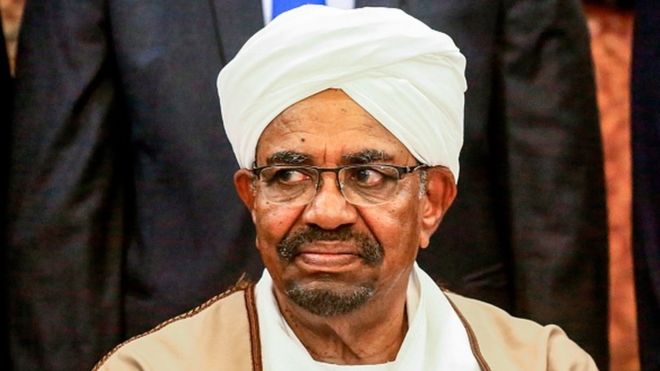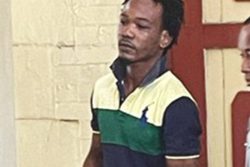KHARTOUM, (Reuters) – Sudanese authorities have arrested several top members of the former ruling party of ousted President Omar al-Bashir, in a move that could bolster military rulers who are under mounting pressure by protesters to hand power to civilians.
In another part of a widening crackdown designed to remove remnants of Bashir’s rule, the transitional military council (TMC) said it will retire all eight of the officers ranked lieutenant general in the National Intelligence and Security Service.
Opposition groups had demanded that the security agencies be restructured.
Sudan’s public prosecutor has begun investigating Bashir on charges of money laundering and possession of large sums of foreign currency without legal grounds, a judicial source said earlier yesterday.
SUITCASES LOADED WITH CASH
The source said military intelligence officers who searched Bashir’s home found suitcases loaded with more than $351,000 and six million euros, as well as five million Sudanese pounds.
“The chief public prosecutor…ordered the (former) president detained and quickly questioned in preparation to put him on trial,” the judicial source told Reuters.
“The public prosecution will question the former president in Kobar prison,” the source said. Bashir has not been questioned yet, the source added. Two of his brothers were also detained on allegations of corruption, the source said.
Relatives could not immediately be reached yesterday for comment about the investigation.
Separately, a source in Bashir’s National Congress Party said authorities arrested the acting party head Ahmed Haroun, former first vice president Ali Osman Taha, former Bashir aide Awad al-Jaz, the secretary general of the Islamic movement Al-Zubair Ahmed Hassan and former parliament speaker Ahmed Ibrahim al-Taher.
The source also said parliament speaker Ibrahim Ahmed Omar and presidential aide Nafie Ali Nafie were under house arrest.
HIGH-SECURITY PRISON
Bashir, who is also being sought by the International Criminal Court (ICC) over allegations of genocide in Sudan’s western Darfur region, was ousted on April 11 by the military following months of protests against his rule and had been held at a presidential residence.
His family said this week that the former president had been moved to the high-security Kobar prison in Khartoum.
Hassan Bashir, a professor of political science at the University of Neelain, said the measures against Bashir are intended as a message to other figures associated with his rule that they are not above the law.
“The trial is a step that the military council wants to take to satisfy the protesters by presenting al-Bashir for trial,” he said.
Bashir survived several armed rebellions, economic crises, and attempts by the West to turn him into a pariah during his 30-year rule before he was toppled in a military coup.
At a sit-in outside Sudan’s Ministry of Defence that began on April 6, protesters, who sleep on the pavement, stood beside posters of Bashir that called on the ICC to put him on trial.









